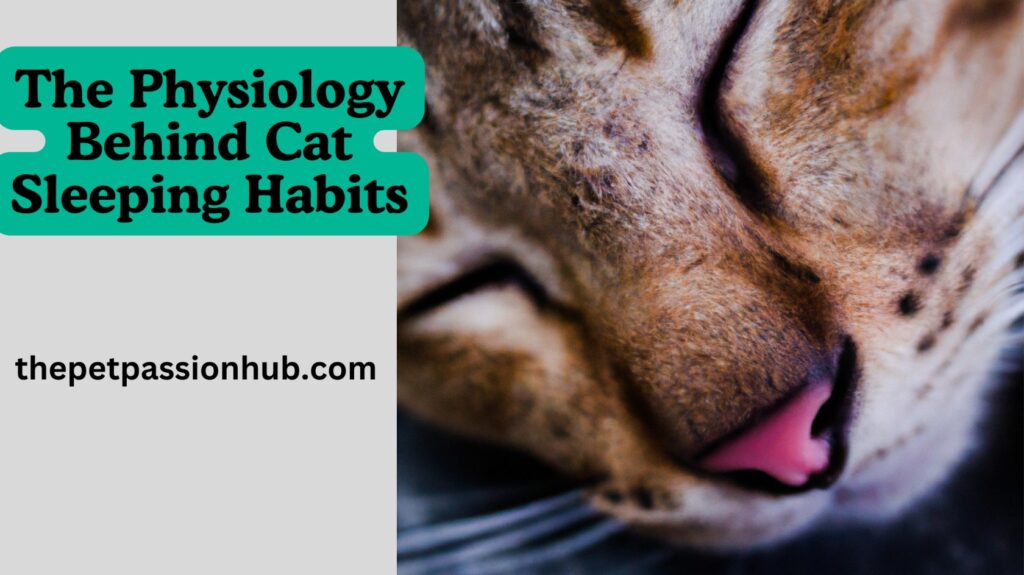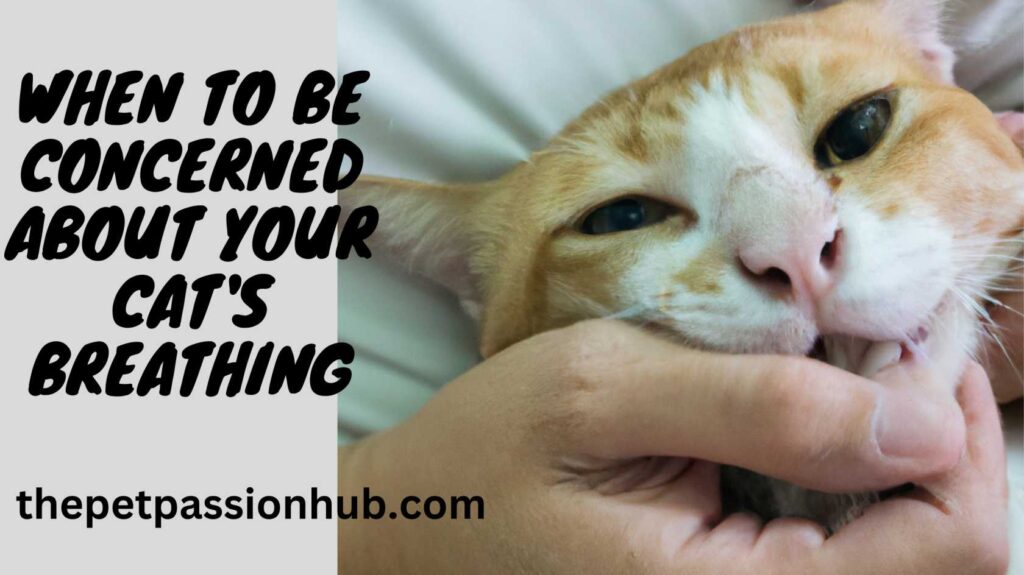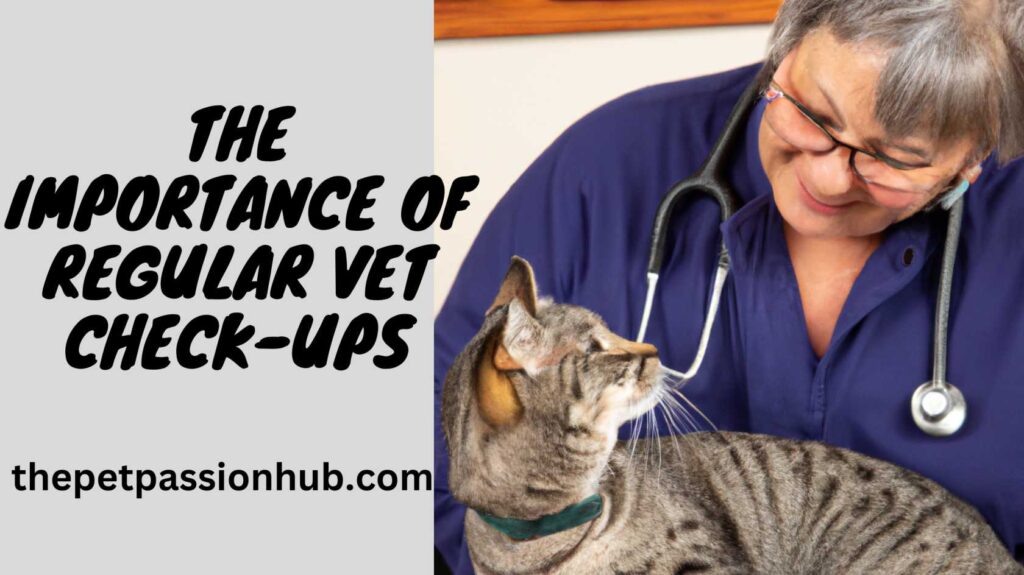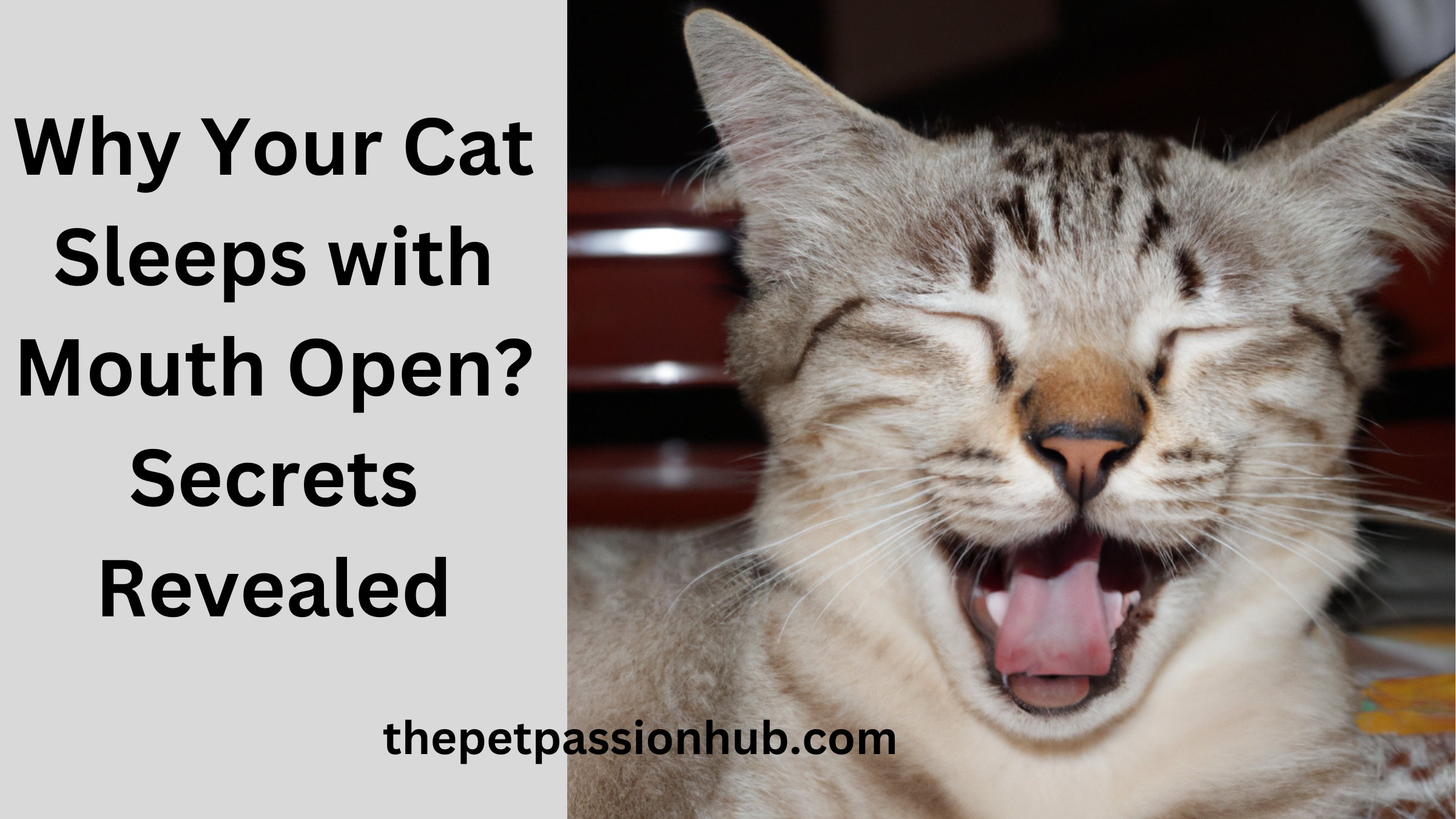Introduction
Have you ever noticed your feline friend sleeping with their mouth wide open, tongue lolling out like they just don’t care?
It’s a sight that can be both amusing and perplexing for cat owners. But don’t worry, you’re not alone in wondering why this peculiar behavior occurs.
In this article, we’ll delve into the fascinating world of cat sleeping habits and uncover the secrets behind why your furry companion may choose to snooze with their jaws agape.
From potential health concerns to quirky feline behaviors, we’ll explore all the possible reasons behind this endearing yet enigmatic phenomenon.
So if you’ve ever found yourself pondering over your cat’s open-mouthed slumber, get ready to unlock the mysteries as we reveal the captivating truths about why your cat sleeps with its mouth open.
An Unusual Sight: Cats Sleeping With Mouth Open
It’s not every day that you catch your cat sleeps with its mouth wide open. But when you do, it’s certainly a sight to behold.
While it might initially seem comical or concerning, there are some interesting reasons behind this unusual sleeping position.
One possible explanation is dental issues – just like humans, cats can suffer from oral problems. That may cause discomfort and lead them to sleep with their mouths open.
From gum disease to tooth decay, these conditions could prompt your feline friend to adopt this peculiar sleeping posture.
Another angle to consider is that cats are masters at regulating their body temperature. And sleeping with their mouths open could be a form of heat release.
By panting slightly while asleep, they may be dissipating excess warmth to stay comfortable during rest. This insight into the natural behaviors of our feline friends sheds light on the multifaceted reasons behind their adorable yet perplexing habits.
Understanding why cats sleep with their mouths open not only deepens our connection with these enigmatic creatures. But also prompts us to pay closer attention to potential health concerns that may manifest in unexpected ways.
The Physiology Behind Cat Sleeping Habits

The enigmatic sleeping habits of cats have long fascinated pet owners and scientists alike. One particularly intriguing aspect is the way cats sleep with their mouths open.
This behavior may appear odd at first, but it actually ties back to the unique physiology of felines. While humans and many other animals close their mouths completely while sleeping. Cats often leave theirs ajar as a means of regulating their body temperature.
Unlike humans, cats have trouble sweating and rely more on panting to release excess heat. By sleeping with their mouths open, they can facilitate this process more effectively.
Furthermore, the position in which a cat sleeps also influences its breathing patterns. When they’re curled up tightly or sprawled out luxuriously in various contorted positions. They may adjust how they breathe to accommodate that particular posture without discomfort or effort.
Thus, whether lounging languidly in sunlight or tucked snugly into cozy corners. A cat’s ability to breathe comfortably while asleep illustrates the remarkable adaptability of its respiratory system.
Common Reasons for Cats Sleeping with Mouth Open
Have you ever noticed your feline friend snoozing with their mouth wide open? While it may seem bizarre, there are several common reasons for this peculiar behavior.
One possible explanation is that cats with respiratory issues, such as a deviated septum or allergies, may find it easier to breathe through an open mouth while sleeping.
Additionally, some cats may sleep with their mouths open. Due to dental problems that cause discomfort when closing their mouths fully.
Another interesting reason for cats sleeping with their mouths open could be related to temperature regulation.
Cats often use panting as a way to cool down when they’re feeling overheated. And sleeping with an open mouth might be their way of expelling excess heat during rest.
It’s important for pet owners to monitor any changes in their cat’s sleeping habits. And consult a veterinarian if they have concerns about the underlying reasons for this behavior.
Cat Sleeps with Mouth Open: Unveiling the Mystery
When to Be Concerned About Your Cat’s Breathing

As cat owners, we often observe our feline friends napping with their mouths slightly open, and while this can be quite adorable, it may also indicate a potential breathing issue.
It’s crucial to pay attention to your cat’s breathing patterns and be concerned if you notice any changes.
Labored or noisy breathing, excessive panting, or wheezing could signal an underlying respiratory problem that requires immediate veterinary attention.
Additionally, keep an eye out for signs of respiratory distress such as open-mouth breathing when not sleeping, coughing, or blue-tinged gums.
These could be indicative of serious conditions such as asthma, pneumonia, heart disease, or even lung tumors.
Remember that cats are masters at masking pain and discomfort so being vigilant about their breathing is vital in catching any issues early on. Your vigilance can make a big difference in your cat’s overall well-being.
Can Dogs Eat Corn? Benefits and Risks of This Popular Veggie for Your Pup
Tips for Helping Your Cat Sleep Better
One of the best ways to help your cat sleep better is to establish a consistent routine. Cats thrive on predictability, so try to feed them, play with them, and provide affection at the same times each day.
Creating a cozy sleeping environment is also crucial for helping your cat get a good night’s rest. Consider providing a comfortable bed in a quiet, dimly lit area of your home where your cat can feel safe and secure.
In addition to physical comfort, mental stimulation is essential for ensuring that your cat sleeps well. Engage your feline friend in stimulating play sessions during the day to help exhaust their energy and encourage restful sleep.
Try introducing puzzle toys or interactive games to keep their minds active and provide mental stimulation throughout the day.
The Importance of Regular Vet Check-Ups

Regular vet check-ups are crucial for ensuring the overall health and well-being of our feline companions. While cats are known for their independent nature, they are experts at masking signs of illness or discomfort.
Through regular check-ups, veterinarians can detect early signs of health issues such as dental problems, kidney disease, and diabetes which might not be noticeable to a cat owner.
Moreover, these visits allow vets to update vaccinations, administer preventative treatments for parasites, and provide advice on nutrition and behavior.
In addition to identifying potential health concerns, regular vet check-ups also play a key role in maintaining a strong bond between cats and their owners.
By prioritizing these appointments, pet parents demonstrate their commitment to their feline friends’ well-being while also receiving valuable guidance on how to best care for their beloved companions.
These appointments also offer an opportunity for owners to raise any concerns they may have about their cat’s behavior or habits that could indicate underlying medical issues or require behavioral intervention.
Conclusion: Understanding and Caring for Your Feline Companion
In conclusion, understanding and caring for your feline companion goes beyond just basic needs. It involves paying attention to their behavior, providing a comfortable environment, and maintaining regular check-ups with the vet.
Remember that each cat is unique, so try to understand their individual preferences and personality quirks. Showing love and patience, along with providing mental stimulation and physical activity, are crucial aspects of caring for your feline friend.
Furthermore, it’s important to be observant of any changes in their behavior or health as this could be an indicator of underlying issues that need attention.
By actively engaging in their well-being and fostering a loving relationship built on trust, you can ensure a happy and fulfilling life for both you and your furry companion.
Ultimately, understanding and caring for your feline companion is an ongoing journey filled with rewards that come from deepening the bond between human and cat.
FAQs
Q: Why does my cat sleep with its mouth open?
A: Cats may sleep with their mouths open to regulate their body temperature or as a sign of relaxation.
Q: Is it normal for cats to sleep with their mouths open?
A: Yes, it is normal for some cats to sleep with their mouths open, especially when they feel comfortable and relaxed.
Q: Should I be concerned if my cat sleeps with its mouth open?
A: Unless your cat shows other signs of distress or discomfort, sleeping with an open mouth is usually not a cause for concern.
Q: Can sleeping with the mouth open indicate any health issues in cats?
A: It could indicate potential health issues such as respiratory problems or dental issues, so it’s always good to monitor your cat’s behavior.
Q: How can I help my cat if it seems uncomfortable sleeping with its mouth open?
A: Consulting a veterinarian is the best way to address any concerns about your cat’s sleeping habits and overall health.
Q: Are certain breeds more prone to sleeping with their mouths open?
A: Some brachycephalic breeds, such as Persians and Himalayans, are more likely to exhibit this behavior due to their facial structure.
Q: Are there any specific environmental factors that may cause a cat to sleep with its mouth open?
A: Extremely warm temperatures or poor air quality could potentially lead a cat to breathe through its mouth while sleeping.
Q: Can I train my cat not to sleep with its mouth open?
A: Generally, you cannot train a cat out of this behavior as it is often natural. However, ensuring your cat has regular veterinary check-ups and maintaining good dental hygiene can help reduce the likelihood of related health issues.
